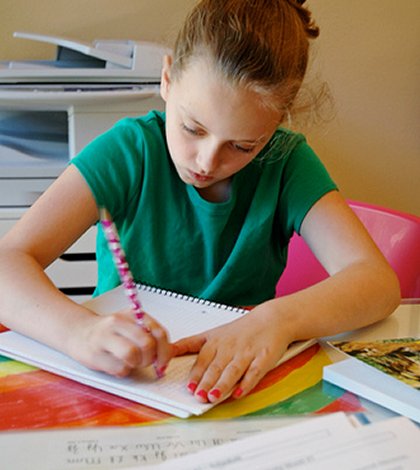Once a relatively unknown condition, dyslexia is thankfully at the forefront of research and treatment in the United States today. Still, while the condition itself is known, the compounding effects on children are still coming to light. For example, dyslexia may be uncovered in the teens or later; this is years after the person has developed important skills that will be used for the rest of their life! We learn to write early in our lives, from age five to ten. During that time, undiagnosed dyslexia can have a significant impact on cognitive development, and in particular, vision related skills. One such skill is handwriting. Sometimes taken for granted, handwriting is a skill we carry with us for much of our lives, and it can have a significant impact on our professional careers.
Dyslexia affects the way the brain interprets images it sees. While most of us read as we are taught, in a learn fashion from right to left, people with dyslexia interpret the words they see differently. They may read words backwards, or they may jumble the letters in the word. Researchers and psychologies have discovered methods of teaching children with dyslexia how to cope with this issue and read normally. However, this may be after basic handwriting skills are developed. As dyslexia effects the way vision is interpreted by the brain, the linear fashion we expect children to learn handwriting may be ineffective for the student with dyslexia.
Students need to be able to visualize what they will write before they put pen to paper. In addition, they must be able to organize and re-organize data in order to form coherent word structures and sentences. Last, visual recall is the skill by which students bring to mind words they have seen before and wish to scribe onto a fresh document. These skills are all impacted by dyslexia, as the child initially learned the words incorrectly in the first place. Imagine the difficulty in recalling the word “building,” if you know how it sounds, but you distinctly remember it being spelled “bingdlui.” An untrained instructor may mistake the cognitive challenge for laziness, and mark the student incorrect. In many cases, children with cognitive difficulties find their challenges compounded when they receive constant negative reinforcement despite hard work and discipline.
There is hope for children with dyslexia. Similar to a speech therapist, today there are writing therapists that can help children with disabilities to learn to write properly and beautifully. While often used to teach children cursive or a special script, they specialize in children with cognitive disabilities as well. Dyslexia is now recognized as a common affliction that can be readily remedied with effective therapy. The condition should no longer hold a negative stigma with the public, as the majority of people with dyslexia go on to lead fully productive professional lives. Early treatment is often effective, so if you believe your child has dyslexia or another vision-related cognitive impairment, contact a writing therapist soon to schedule a consultation.
Genie Fletcher

 Recipes52 years ago
Recipes52 years ago
 Entertainment52 years ago
Entertainment52 years ago
 Entertainment52 years ago
Entertainment52 years ago
 Entertainment52 years ago
Entertainment52 years ago
 Entertainment52 years ago
Entertainment52 years ago













